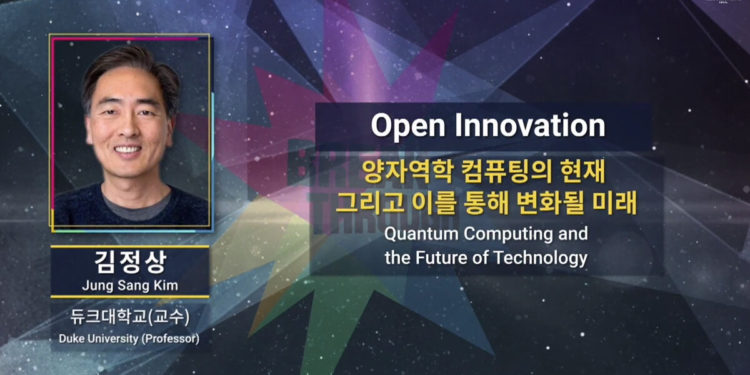The Ministry of SMEs and Startups launched this year’s biggest startup festival in South Korea, the COMEUP 2020, from November 19-21. The three-day event aims to connect startups and business ventures under the theme “Meet the Future – Post Pandemic.”
The second day took on topics such as quantum computing, open innovation, robotics, and artificial intelligence, remote work, and the future of manufacturing.
Quantum Computing and the Future of Technology
The COMEUP 2020 event in Korea highlighted various digital and communication technologies utilized in different sectors and industries. Modern societies relied heavily on classical computing, which paved the way for the emergence of personal computers, the internet, and digital commerce.
Classical computing became the backbone of modern society, driving the economy and financial markets during the information age. However, regardless of how powerful classical computers work, some important problems still exist. The world needs a new standard of computing to solve and unlock many of these problems.
Jung Sang Kim, IONQ Co-Founder and CTO Professor at Duke University shared his knowledge on quantum computing and its impact on the future of technology.

Professor Kim said that quantum computing holds the potential to solve many problems experienced by different social sectors. Quantum computing involves vast areas from logistics, materials, financial, and machine learning. Likewise, full-scale and flexible technology covers immense market opportunities.
IONQ would become the first company able to develop this massive opportunity. According to Richard Feynman, Nobel awardee and quantum physics pioneer, quantum computing would make a good simulation of nature.
Computer Factoring
The professor stressed that Quantum principles would become the basis of next-generation computers for solving big data problems. The new era of computing would use nature’s language or quantum physics, as we know it.
IONQ co-founder also discussed the quantum attributes: superposition and entanglement. Superposition analyses and solves situations that contain two similar possibilities, while entanglement reads strong correlations involving two sets of data.
Scientists and analysts depended on Moore’s Law to predict outcomes from particular possibilities. For example, Moore’s Law predicted that computer chips get faster and more powerful every 18 months in the 1980s until early 2000. However, the last 15 years saw a slowing down of the rate of computer chip developments.
Huge industries struggle to find solutions for optimization, logistics, material functions, and chemical structures. AI and machine learning also present a problem in accessing, collecting, and storing massive data.
IONQ Addressable Applications
Quantum mechanical computers offer solutions in finding the most efficient way to address problems like these. AI companies could employ Quantum principles to analyze patterns and build more accurate outcomes and predictions.
IONQ computers are reconfigurable in software for future applications in many industry sectors such as pharma, energy, transportation and finance.
According to Professor Kim, the Quantum Revolution began, transforming society from the industrial age, informative age, and Quantum age. Quantum computing would become the solution for problems thought to be unsolvable.
“Today, the quantum revolution is in the information age, to reach the age of quantum age we need to train ourselves in understanding the fundamentals of science and be extremely creative.”
Visit COMEUP 2020 website to view the event’s programs. https://www.kcomeup.com/prog/program-main-event.jsp?







